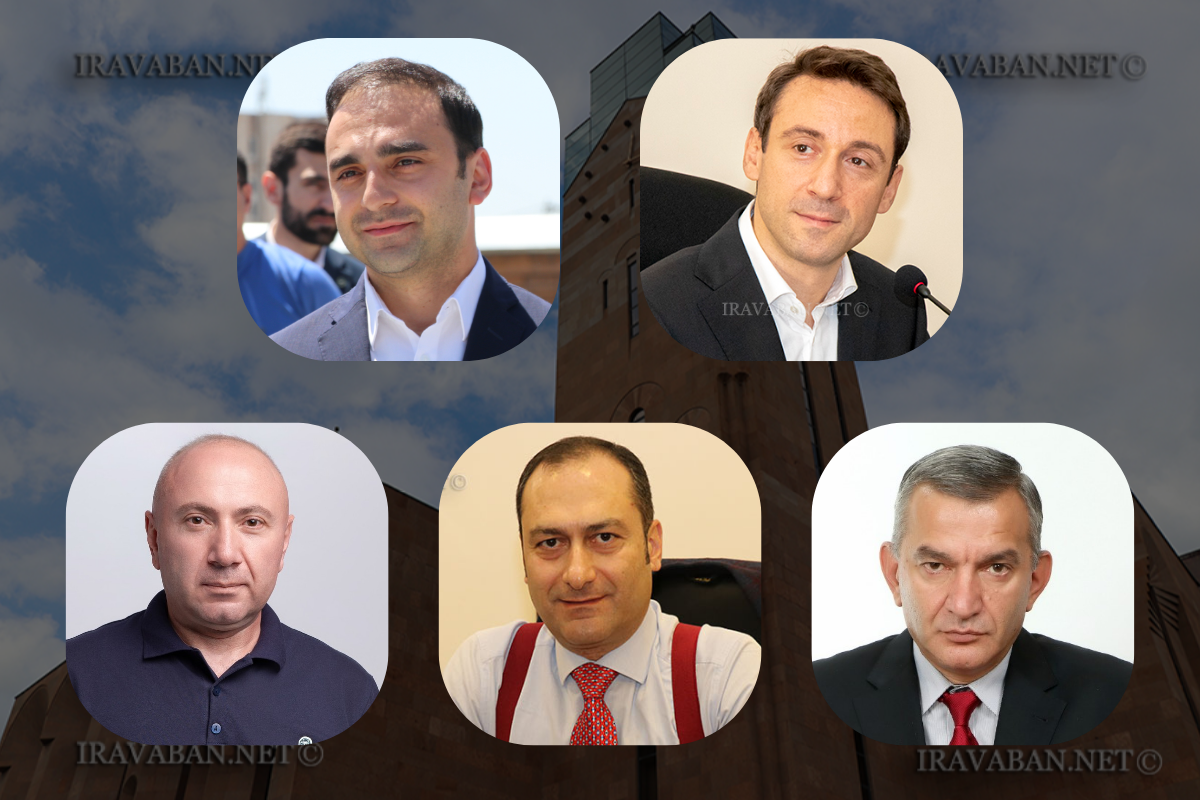As we have already reported, the Central Electoral Commission has summarized the results of elections to the Yerevan Council of Elders with the data obtained from all 475 precincts.
Iravaban.net informs: “Article 141 of the Electoral Code, according to which the summary of the results of the elections of the councils of the communities held by the proportional electoral system is defined, it is noted that mandates of the members of council of elders shall be distributed among the electoral lists of those political parties (alliances of political parties) that have received 4 per cent, in case of a political party, and 6 per cent, in case of an alliance of political parties, of ballot papers with affirmative vote out of the sum of the total number of ballot papers with affirmative vote and the number of inaccuracies.”
Thus, 5 political forces participating in the elections passed the temporary threshold.
“Civil Contract” – Tigran Avinyan – 32.57%
“National Progress” – Hayk Marutyan – 18.89%
“Mother Armenia” – Andranik Tevanyan – 15.43%
“Republic” – Artak Zeynalyan – 11.32%
“Public Voice” – Artak Galstyan – 9.68%
According part 4 of the same article, Mandates of the members of the council of elders shall be distributed among the electoral lists of political parties (alliances of political parties) in proportion with the number of ballot papers cast in favour of each of them. The number of mandates available for each electoral list shall be calculated as follows: the number of ballot papers with affirmative vote cast in favour of each electoral list shall be multiplied by the number of mandates available for electoral lists, the product shall be divided by the total number of ballot papers with affirmative vote cast in favour of the electoral lists participating in the distribution of mandates, and the integer numbers shall be parted which shall be the numbers of mandates available for the electoral list of each political party (alliance of political parties).
The remaining mandates shall be distributed among electoral lists by the sequence of value of remainders, by the principle of one mandate to each. In case the values of remainders are equal, the contested mandate shall be given to the electoral list with the highest number of ballot papers with affirmative vote cast in favour, whereas in the event of a tie the mandate shall be given by drawing of lots.
It turns out that, according to preliminary data, the parties will have the following number of mandates in the Council of Elders:
“Civil Contract” – 24
“National Progress” – 14
“Mother Armenia” – 12
“Republic” – 8
“Public Voice” – 7.
The mayor is elected or appointed after the summary of election results and the formation of the Council of Elders, from the composition of the Council of Elders.
If one of the participating parties (alliance of parties) receives more than 50 percent of the seats as a result of the election of the council of elders of the community, then the person at the top of the list of candidates of that Party (alliance of parties) is considered the elected head of the community by force of law.
In the event that the person at the top of the electoral list refuses or as a result of the council elections, no Party (alliance of parties) receives more than 50 percent of the council members’ seats, then the head of the community is elected through open voting. If one candidate is nominated, he is elected head of the community if the votes in favor of him are more than the number of votes against and are more than 40 percent of the total number of council members.
If more than one candidate is nominated, the candidate who receives the majority of the votes of the total number of council members is elected as the head of the community. Otherwise, a second round of voting is held between the two candidates who received the most votes. If, due to equal votes, it is not possible to determine the two candidates who received the most votes, then the other candidates who received equal votes also participate in the second round. The candidate, who received the most votes in the second round, is elected the head of the community. In case of equality of votes, an additional vote is held, including only those who received equal votes in the ballot. In the event of a tie in additional voting, the elder person will have the upper hand.
The second round of voting and additional voting are held immediately after the announcement of the main voting results.















